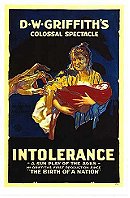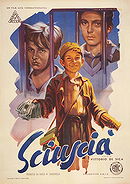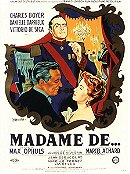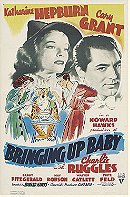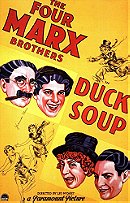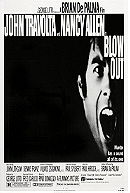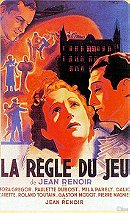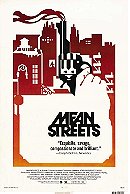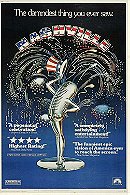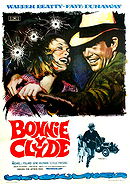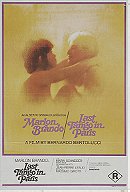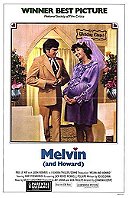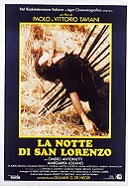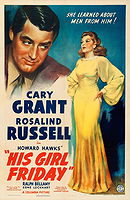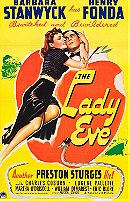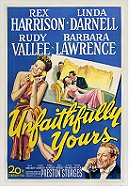Pauline Kael's Favorite Films
Sort by:
Showing 19 items
Decade:
Rating:
List Type:
 Add items to section
Add items to section
Favorite Movie
Kael on experiencing cinema.
Ménilmontant (1926)

Dmitri Kirsanov, a young Russian emigré who worked as a violinist in a Paris moviehouse, made one of the greatest of all experimental films--an exquisite, poetic 40-minute movie that is one of the least known masterpieces of the screen. Working by himself, apart from even the experimental filmmakers of the period, he developed a technique that suggests the movement known in painting as Futurism. The extraordinary editing is, at first, confusing and upsetting, and, finally, dazzling. The story is of two sisters who are both betrayed by the same man; the performance by Nadia Sibirskaya as the younger of the two is surpassingly beautiful. In one scene she is seated on a park bench next to an old man who surreptitiously shares his food with her--it's as great as anything in Chaplin. Silent. - Pauline Kael
Mr. Saturn's rating:


 Add items to section
Add items to section
Not in Order
Films Pauline Kael really liked.
Intolerance (1916)

But let me tell you an American movie that was made by D.W. Griffith and was called “Intolerance.” It wasn’t a successful movie commercially, but it was very successful with me. - Pauline Kael
D.W. Griffith's epic celebration of the potentialities of the film medium-perhaps the greatest movie ever made and the greatest folly in movie history. It is charged with visionary excitement about the power of movies to combine music, dance, narrative, drama, painting, and photography-to do alone what all the other arts together had done. In this extravaganza one can see the source of most of the major traditions of the screen-the methods of Eisenstein and von Stroheim, the Germans and the Scandinavians, and, when it's bad, De Mille. It combines extraordinary lyric passages, realism, and psychological details with nonsense, vulgarity, and painful sentimentality. Four stories set in different historical periods are told by crosscutting, and they reach simultaneous climaxes. The cast includes Lillian Gish in the linking device; Mae Marsh and Robert Harron in the modern story, "The Mother and the Law;" Bessie Love in the Biblical story, "The Nazarene;" Margery Wilson and Eugene Pallette in "The Medieval Story," which includes the St. Bartholomew's Day Massacre of the Huguenots in 1572; Constance Talmadge, Elmo Lincoln, Seena Owen, Alfred Paget, and Tully Marshall in "The Fall of Babylon." Cinematography by Billy Bitzer and Karl Brown; Griffith's assistants included W.S. Van Dyke, Tod Browning, and von Stroheim. Silent. The prints were originally dyed in several hues, and crews of girls added extra color frame by frame; the projectionists were also instructed to throw beams of red and blue light to intensify the effects. - Pauline Kael
Mr. Saturn's rating:



Vittorio De Sica's lyric study of how two boys betrayed by society betray each other and themselves. It has a sweetness and a simplicity that suggest greatness of feeling, and this is so rare in films that to cite a comparison one searches beyond the medium. If Amadeus Mozart had written an opera set in poverty, it might have had this kind of painful beauty. The two young shoeshine boys sustain their friendship and their dreams amid the apathy of postwar Rome, but they are destroyed by their own weaknesses and desires when they're sent to prison for black-marketeering. Cesare Zavattini wrote this study of the corruption of innocence; it is a social-protest film that rises above its purpose. - Pauline Kael
[...]after one of those terrible lovers' quarrels that leave one in a state of incomprehensible despair. I came out of the theater, tears streaming, and overheard the petulant voice of a college girl complaining to her boyfriend, 'Well I don't see what was so special about that movie.' I walked up the street, crying blindly, no longer certain whether my tears were for the tragedy on the screen, the hopelessness I felt for myself, or the alienation I felt from those who could not experience the radiance of Shoeshine. For if people cannot feel Shoeshine, what can they feel?... Later I learned that the man with whom I had quarreled had gone the same night and had also emerged in tears. Yet our tears for each other, and for Shoeshine did not bring us together. Life, as Shoeshine demonstrates, is too complex for facile endings. - Pauline Kael
Mr. Saturn's rating:



Perfection. This tragedy of love, which begins in narcissistic flirtation and passes from romance to passion to desperation, is set, ironically, in aristocratic circles that seem too superficial to take love tragically. The very beauty of Max Ophüls' film is sometimes used against it: the gliding, sensuous camerawork, the extraordinary romantic atmosphere, the gowns, the balls, the chandeliers, the nuances of language, and the sense of honor are regarded as evidence of lack of substance. But Ophüls loved Mozart and Stendhal, and he also calls up a third master: the opera sequence that gives the film its musical theme is Gluck's Orfeo. The performances by Danielle Darrieux as Madame de, by Charles Boyer as her husband, Monsieur de, a general, and by Vittorio De Sica as her lover, the Baron, are quite likely the finest each has given. Ophüls' lush, decorative style, his re-creation of a vanished elegance, and his darting, swirling camera are used to evoke the protection that style and manners and wealth provide, and to demonstrate that passion can destroy it all. Even the fashionable and secure become rash, make fools of themselves. Boyer, the general, attempting to use military discipline to cure his wife of her unseemly displays of emotion, is as helpless as she is. Anna Karenina gets her lover but she finds her life shallow and empty; Madame de's life has been so shallow and empty that she cannot keep her lover. She is destroyed, finally, by the fact that women do not have the same sense of honor that men do, or the same sense of pride. When she lies to the Baron, how could she know that he would take her lies as proof that she did not really love him? What he thinks dishonorable is merely unimportant to her. She places love before honor (what woman does not?) and neither her husband nor her lover can forgive her. With Jean Debucourt as the jeweler, and Lia de Lea as the general's mistress. Based on Louise de Vilmorin's novella Madame de…, which is far more astringent than the film; the script is by Marcel Achard, Annette Wademant, and Ophüls. Cinematography by Christian Matras; sets by Jean d'Eaubonne. In French. - Pauline Kael
Mr. Saturn's rating:


Bringing Up Baby (1938)

Lunatic comedies of the 30s generally started with an heiress. This one starts with an heiress (Katharine Hepburn) who has a dog, George, and a leopard, Baby. Cary Grant is a paleontologist who has just acquired the bone he needs to complete his dinosaur skeleton. George steals the bone, Grant and Baby chase each other around, the dinosaur collapses-but Grant winds up with Hepburn, and no paleontologist ever got hold of a more beautiful set of bones. The director, Howard Hawks, keeps all this trifling nonsense in such artful balance that it never impinges on the real world; it may be the American movies' closest equivalent to Restoration comedy. With Charles Ruggles as an explorer, Barry Fitzgerald as a drunk, May Robson as a dowager, Walter Catlett as a sheriff, and Fritz Feld as a frenzied psychoanalyst. George is played by Asta, of The Thin Man Series. The screenplay is by Dudley Nichols and Hagar Wilde, from Wilde's story. (This picture was the taking-off point for Peter Bogdanovich's comedy WHAT'S UP, DOC?) RKO. - Pauline Kael
Mr. Saturn's rating:


The Rules of the Game (1939)

Perhaps the most influential of all French films, and one of the most richly entertaining. Jean Renoir's legendary butchered and then restored masterpiece is a farce about a large houseparty, gathered for a hunt, where the servants and masters begin to chase and shoot each other. The party at the country château is a tragicomic world in motion; ironically, once the whole mechanism is spinning the man who begins at the center of it--the romantic aviator (Roland Toutain)--is flicked off. With Marcel Dalio as the Marquis, Julien Carette as the poacher, Gaston Modot as the gamekeeper, Nora Gregor as Christine, Mila Parély as Genevieve, Paulette Dubost as Lisette, and Renoir as Octave. The script, by Renoir, assisted by Carl Koch, was derived from Alfred de Musset's Les Caprices de Marianne. Cinematography by Jean Bachelet and J.P. Alphen; costumes by Chanel; Cartier-Bresson served as an assistant director. Released in Paris in 1939 after being cut by the distributors; cut again after violent audience reactions; banned as demoralizing by the Vichy government and then banned by the Nazis. The original negative was destroyed when the Allies bombed the studios at Boulogne; the picture was reassembled (from 200 cans of film and bits of sound track) and restored in the late 50s. Selected by the 1962 international poll of critics as the third greatest film ever made. In French. - Pauline Kael
Mr. Saturn's rating:



The Leopard is so beautifully felt that it calls up a whole culture. It casts an intelligent spell - intelligent and rapturous. - Pauline Kael

A true original, and a triumph of personal filmmaking. This picture about the experience of growing up in New York's Little Italy has an unsettling, episodic rhythm and it's dizzyingly sensual. The director, Martin Scorsese, shows us a thicker-textured rot than we have ever had in an American movie, and a riper sense of evil. - Pauline Kael
Nashville (1975)

The funniest epic vision of America ever to reach the screen. Robert Altman's movie is at once a GRAND HOTEL-style narrative, with 24 linked characters; a country-and-Western musical; a documentary essay on Nashville and American life; a meditation on the love affair between performers and audiences; and an Altman party. In the opening sequences, when Altman's people-the performers we associate with him because he has used them in ways no one else would think of, and they've been filtered through his sensibility-start arriving, and pile up in a traffic jam on the way from the airport to the city, the movie suggests the circus procession at the non-ending of 81. But Altman's clowns are far more autonomous; they move and intermingle freely, and the whole movie is their procession. The basic script is by Joan Tewkesbury, but the actors have been encouraged to work up material for their roles, and not only do they do their own singing but most of them wrote their own songs-and wrote them in character. The songs distill the singers' lives, as the pantomimes and theatrical performances did for the actors in CHILDREN OF PARADISE. - Pauline Kael
She wrote about Nashville in The New Yorker.
Bonnie and Clyde (1967)

A landmark movie, this account of the lives of the 30s outlaws Bonnie Parker (Faye Dunaway) and Clyde Barrow (Warren Beatty) keeps the audience in a state of eager, nervous imbalance; it holds our attention by throwing our disbelief back in our faces. In a sense it's the absence of sadism-it is the violence without sadism-that throws the audience off balance. The brutality that comes out of the innocent "just-folks" Barrow-family gang is far more shocking than the calculated brutalities of mean killers. And there is a kind of American poetry in a stickup gang seen chasing across the bedraggled backdrop of the Depression-as if crime were the only activity in a country stupefied by poverty. - Pauline Kael
Here's Kael's New Yorker article.
Melvin and Howard (1980)

This lyrical comedy, directed by Jonathan Demme, from a script by Bo Goldman, is an almost flawless act of sympathetic imagination. Demme and Goldman have entered into the soul of American blue-collar suckerdom; they have taken for their hero a chucklehead who is hooked on TV game shows, and they have made us understand how it was that when something big--something legendary--touched his life, nobody could believe it. Paul Le Mat plays big, beefy Melvin Dummar, a sometime milkman, sometime worker at a magnesium plant, sometime gas-station operator, and hopeful songwriter--the representative debt-ridden American for whom game shows were created. Jason Robards plays Howard Hughes, who is lying in the freezing desert at night when Melvin spots him--a pile of rags and bones, with a dirty beard and straggly long gray hair. Melvin, thinking him a desert rat, helps him into his pickup truck but is bothered by his mean expression; in order to cheer him up (and give himself some company), he insists that the old geezer sing with him or get out and walk. When Robards' Howard Hughes responds to Melvin's amiable prodding and begins to enjoy himself on a simple level and sings "Bye, Bye, Blackbird," it's a great moment. Hughes' eyes are an old man's eyes--faded into the past, shiny and glazed by recollections--yet intense. You feel that his grungy paranoia has melted away, that he has been healed. With Mary Steenburgen, who has a pearly aura as Melvin's go-go-dancer wife, Lynda; Pamela Reed as Melvin's down-to-earth second wife; Elizabeth Cheshire as the child Darcy; Jack Kehoe as the dairy foreman; and the real Melvin Dummar as the lunch counterman at the Reno bus depot. This picture has the same beautiful dippy warmth as its characters; it's what might have happened if Jean Renoir had directed a comedy script by Preston Sturges. Cinematography by Tak Fujimoto. Universal. - Pauline Kael, Taking It All In.

The Night of the Shooting Stars is so good it's thrilling. This new film encompasses a vision of the world. Comedy, tragedy, vaudeville, melodrama - they're all here, and inseparable...In its feeling and completeness, Shooting Stars may be close to the rank of Jean Renoir's bafflingly beautiful Grand Illusion...unreality doesn't seem divorced from experience (as it does with Fellini) - it's experience made more intense...For the Tavianis, as for Cecilia, the search for the American liberators is the time of their lives. For an American audience, the film stirs warm but tormenting memories of a time when we were beloved and were a hopeful people. - Pauline Kael, Taking It All In
 Add items to section
Add items to section
Liked
Also not in order.
His Girl Friday (1940)

In 1928 Ben Hecht and Charles MacArthur wrote The Front Page, the greatest newspaper comedy of them all; Howard Hawks directed this version of it — a spastic explosion of dialogue, adapted by Charles Lederer, and starring Cary Grant as the domineering editor Walter Burns and Rosalind Russell as Hildy Johnson, the unscrupulous crime reporter with printer’s ink in her veins. (In the play Hildy Johnson is a man.) Overlapping dialogue carries the movie along at breakneck speed; word gags take the place of the sight gags of silent comedy, as this race of brittle, cynical, childish people rush around on corrupt errands. Russell is at her comedy peak here — she wears a striped suit, uses her long-legged body for ungainly, unladylike effects, and rasps out her lines. And, as Walter Burns, Grant raises mugging to a joyful art. Burns’ callousness and unscrupulousness are expressed in some of the best farce lines ever written in this country, and Grant hits those lines with a smack. He uses the same stiff-neck cocked-head stance that he did in Gunga Din: it’s his position for all-out, unstuble farce. He snorts and whoops. His Burns is a strong-arm performance, defiantly self-centered and funny. The reporters — a fine crew — are Ernest Truex, Cliff Edwards, Porter Hall, Roscoe Karns, Frank Jenks, Regis Toomey; also with Gene Lockhart as the sheriff, Billy Gilbert as the messenger, John Qualen, Helen Mack, and Ralph Bellamy as chief stooge — a respectable businessman — and Alma Kruger as his mother. - Pauline Kael

A frivolous masterpiece. Like BRINGING UP BABY, THE LADY EVE is a mixture of visual and verbal slapstick, and of high artifice and pratfalls. Barbara Stanwyck keeps sticking out a sensational leg, and Henry Fonda keeps tripping over it. She's a cardsharp, and he's a millionaire scientist who knows more about snakes than about women; neither performer has ever been funnier. The film, based on a story by Monckton Hoffe, and with screenplay and direction by Preston Sturges, is full of classic moments and classic lines; it represents the dizzy high point of Sturges's comedy writing. With Charles Coburn, Eugene Pallette, William Demarest, and Eric Blore. (Remade as a musical in 1956-THE BIRDS AND THE BEES.) - Pauline Kael
Mr. Saturn's rating:


Unfaithfully Yours (1948)

One of the most sophisticated slapstick comedies ever made, this classic, written and directed by Preston Sturges, got terrible reviews and failed at the box office. The hero, a symphony conductor (a parody of Sir Thomas Beecham), is played by Rex Harrison, who is at one of his comic peaks. During a concert the conductor, convinced that his wife (Linda Darnell) has been unfaithful to him, fantasizes how he will handle the situation in three different ways, according to the style of the music on the program--Rossini's Overture to Semiramide, the "Pilgrim's Chorus" from Wagner's Tannhäuser, and Tchaikovsky's "Francesca da Rimini." After the concert, he tries to carry them out, scrambling them hopelessly. There are so many great lines and situations in this movie that writers and directors have been stealing from it for years, just as they've been stealing from Sturges's other work, but no one has ever come close to the wild-man deviltry of the best Preston Sturges comedies. - Pauline Kael
Mr. Saturn's rating:


The list is non preferential.
Sources: Salon
Many of Pauline Kael's reviews are on this website.
The Age of Movies: Selected Writings of Pauline Kael and State of the Art: Film Writings 1983–1985
Sources: Salon
Many of Pauline Kael's reviews are on this website.
The Age of Movies: Selected Writings of Pauline Kael and State of the Art: Film Writings 1983–1985
Added to
Related lists
20 From 70. My Favorite Films From The Year 1970
20 item list by The Mighty Celestial
13 votes 2 comments
2 comments
20 item list by The Mighty Celestial
13 votes
 2 comments
2 comments
35 From 00: My Favorite Films From The Year 2000
35 item list by The Mighty Celestial
6 votes 1 comment
1 comment
35 item list by The Mighty Celestial
6 votes
 1 comment
1 comment
View more top voted lists
 Login
Login
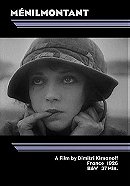
 102
102
 8.4
8.4
 7.8
7.8
